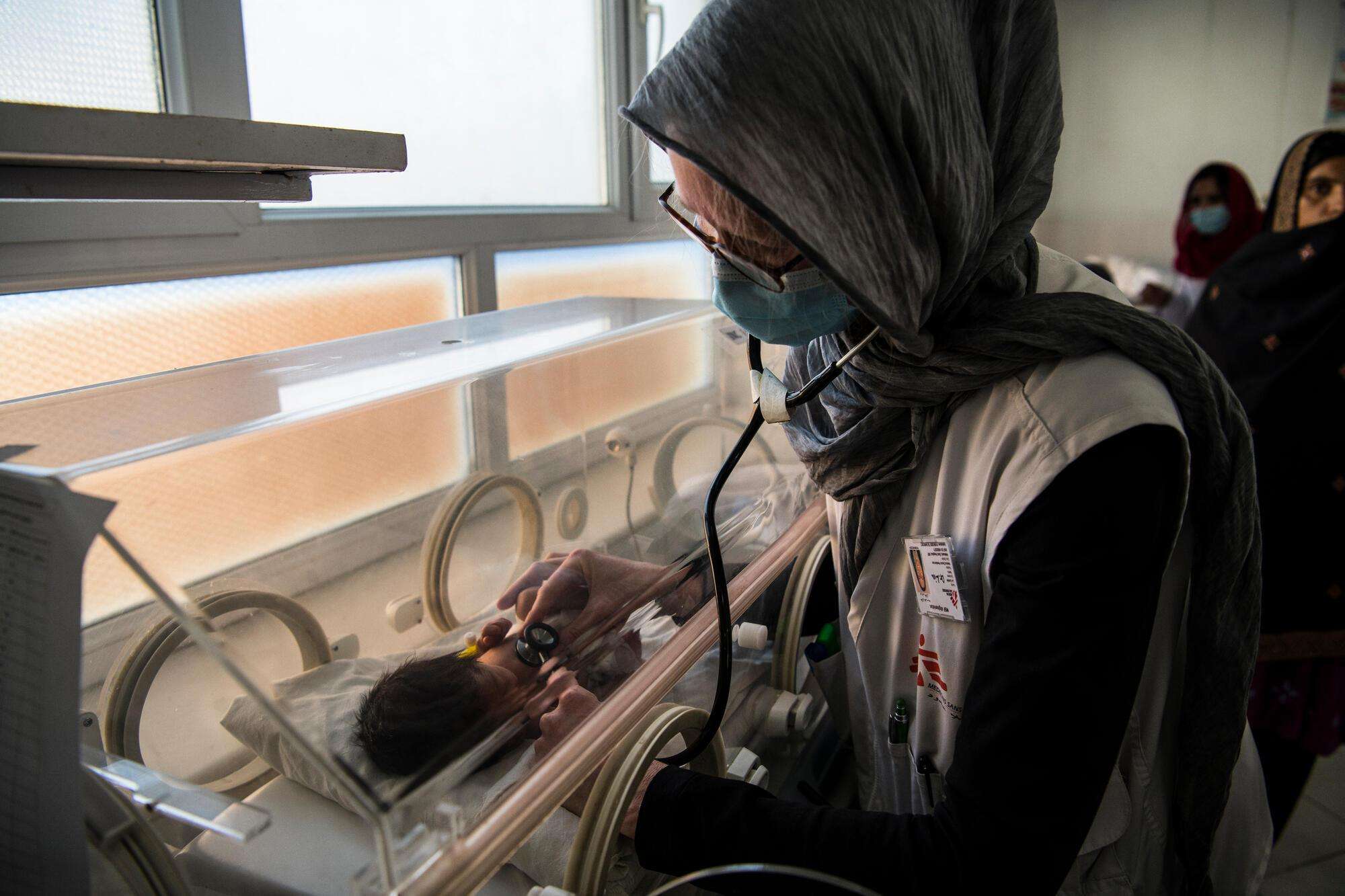NEW YORK/KABUL, June 9, 2021—People seeking medical care in Afghanistan are often forced to take extreme risks and pay unaffordable fees, leading to patients arriving late and in critical condition, according to a new report by Doctors Without Borders/Médecins Sans Frontières (MSF), which is urging renewed attention to the Afghan health system amid a broader crisis in the country.
Afghanistan has entered yet another period of instability this year, with intensifying hostilities and worsening humanitarian needs, compounded by the COVID-19 pandemic and its socioeconomic impact.
In the report, The Continued Struggle to Access Medical Care in Afghanistan, MSF shares its survey of patients and their caretakers in Helmand, Herat, Kandahar, and Khost provinces in February. Forty-six percent of patients had delayed seeking medical care when they were ill or injured in the past year, mainly due to health care costs and insecurity. The report describes how medical teams regularly witness the consequences of late patient arrivals, especially among children, women, and patients with chronic diseases.
"After two decades of international aid and investment, Afghans continue to struggle to access basic and emergency medical care due to insecurity, distance, cost, and the fact that many health facilities do not function adequately," said Karsten Noko, MSF project coordinator in Afghanistan. "Direct medical and nonmedical costs have an impact on people’s ability to access medical care, even more so now that more than half of the population is living below the national poverty line."
Eighty-one percent of respondents said they had experienced financial difficulties as a result of spending on health care, such as needing to borrow money or reduce spending on food or other essential needs.
Large parts of the population in Afghanistan do not have access to a functioning medical facility near their homes to obtain quality, free medical care. The distances patients have to travel, the dangers of armed conflict, and the costs of medical care remain the most difficult barriers, in a context of pervasive poverty.
A third of those surveyed by MSF identified violence and insecurity on the roads as a key obstacle. Patients and caretakers say they must weigh the possibility of mined roads, ground fighting, checkpoints, and criminality—before seeking care.
At the same time, underfunded and underresourced health care facilities are unable to deliver basic services, the report found.
International donors—whose decisions have shaped the current model of health care financing and delivery in Afghanistan—have announced considerable reductions in future funding assistance for the country, and some linked assistance to politically motivated conditions. This will increase the pressure on the fragile public health system and on health partners to meet the rapidly growing medical needs of the Afghan population.
"Rather than cutting resources, international donors and health care providers should urgently review the challenges facing Afghanistan's patients and health system, in order to reduce barriers to health care," Noko said.
MSF is a medical humanitarian organization operating under the principles of independence, impartiality, and neutrality. Since the 1980s, MSF has provided medical care throughout Afghanistan, in areas under the control of a variety of political and armed factions. Currently, MSF works in Helmand, Herat, Kandahar, Khost, and Kunduz provinces. In Afghanistan, MSF relies solely on private funding and does not accept funds from any government for its work.





